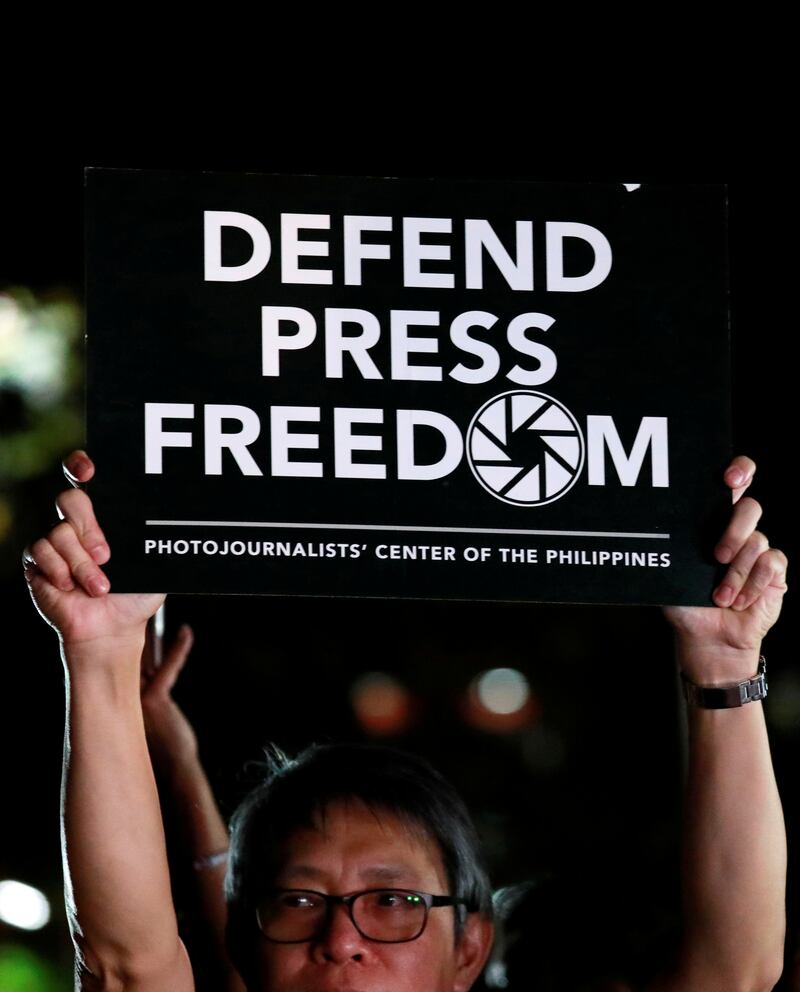UPDATED at 11.58 p.m. ET on 04-24-2024
Rights abuses have continued in the Philippines under Ferdinand Marcos Jr.’s presidency, through alleged indiscriminate or illegal killings by police after he prolonged his immediate predecessor’s anti-drug campaign, the U.S. State Department said in an annual report on human rights.
Marcos had pledged to carry on with ex-President Rodrigo Duterte's war on drugs but differently and with fewer killings, and the report acknowledged an attempt to focus on weaning people from drugs.
“There were no significant changes in the human rights situation in the Philippines during the year, although the number of incidents of arbitrary and extrajudicial killings and of some other abuses by government agents decreased,” the department said in its 2023 Country Reports on Human Rights Practices, released Monday.
“Significant human rights issues” in the Philippines last year included extrajudicial killings, indiscriminate detention, torture, and enforced disappearances, among others, the report added.
“There were numerous reports of arbitrary or unlawful killings by police in connection with anti-drug operations.”
While the counter-narcotics campaign has continued under Marcos, it was “with a focus on treatment and rehabilitation, due process, and rule of law-based investigation,” the report said.
Rights groups have accused the national police under Duterte of killing thousands of people during his government’s war on illegal drugs, from 2016 to 2022.
About 8,000 suspected addicts and dealers were killed during the Duterte administration’s crackdown, according to government statistics, although rights groups have said the number could be three times higher.
The Philippine Department of Foreign Affairs said in a statement that the U.S. assessment did not reflect the situation on the ground and suggested experts “thoroughly examine their methodologies.”
“The government endeavors to invest more in institutions and our people to enable us to meet the highest standards in the pursuit of our rights-based governance agenda,” it said. “Our human rights reform agenda stands on solid ground under the Marcos administration.”
The U.S. report “lists a litany of ‘significant human rights issues’ in the Philippines, including extrajudicial killings, the targeting of activists and journalists, among others,” Bryony Lau, deputy Asia director for Human Rights Watch, said in a statement Tuesday.
“Despite claims by President Ferdinand Marcos Jr. that the human rights situation has improved, the report shows his administration needs to do more to ensure rights are respected and perpetrators of abuses are held to account,” she added.
‘Concerns about police impunity’
Extrajudicial killings, including drug-related ones, “largely by police but also by other security forces,” remained a serious problem, the report said.
The U.S. State Department report cited data from Dahas PH, a Philippine NGO, as revealing that 209 drug-related killings had taken place from January to August 2023. Marcos came to power in mid-2022.
The report said that the Philippines’ Commission on Human Rights, an independent government ombudsman’s office, had investigated 15 drug-related extrajudicial killings with 18 victims, and suspected the national police’s involvement in eight of them.
The State Department’s report noted that the government had investigated some reported human rights abuses, including abuses by its security forces and paramilitary forces.
“Concerns about police impunity remained, given reports of continued extrajudicial killings by police. Significant concerns also persisted about impunity for other security forces, and civilian national and local government officials,” the report said.
‘Chilling effect’
In other areas related to human rights, Filipinos could criticize the government publicly or privately “on the surface,” the State Department found.
However, former President Duterte’s tirades against his critics have had a “chilling effect” on free speech, observers and NGOs noted.
“Journalists continued to face harassment, threats of violence, and violence, including from individual politicians, government authorities, and powerful private persons critical of their reporting,” the U.S. report said.
“Physical attacks, including at least one killing, against journalists continued and several cases from previous years remained unresolved.”

In May 2023, a Philippine radio broadcaster was killed
by unknown assailants in a dawn attack by two motorcycle-riding gunmen in Oriental Mindoro, a province in the south of the main island of Luzon.
Meanwhile, drag artist Amadeus Fernando Pagente who performs as Pura Luka Vega, was arrested after facing charges of "immoral doctrines, obscene publications and exhibitions, and indecent shows" over his portrayal of Jesus Christ singing a remixed version of the Lord's Prayer.
Supporters slammed the action as a violation of freedom of expression.
The report cited the National Union of Journalists of the Philippines (NUJP) data that showed 60 press freedom violations from January to April, of which 19 were harassment cases and 12 were red-tagging.
“The practice of “red-tagging” – labeling human rights advocates, unions, religious groups, academics, and media organizations as fronts for or clandestine members of insurgent and other political groups – continued under the Marcos administration, which has neither suppressed nor condemned the practice,” it added.
This story was updated to include comment from the Philippine Department of Foreign Affairs.
